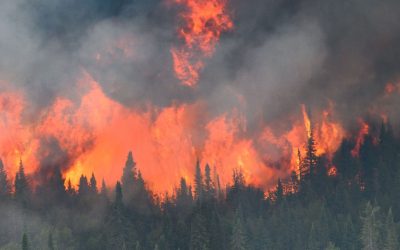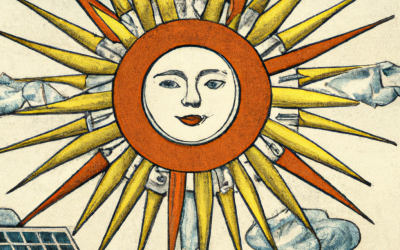Frontier Centre: How accurate are the population data on polar bears?
Mitch Taylor: Accuracy is a difficult question to answer because it assumes that you know the correct answer and you’re comparing the estimate to what’s really there. We feel that the population estimates are fairly accurate for most of the populations in Canada.
FC: We keep hearing that the polar bear is threatened and in decline. Is that true?
MT: Polar bears, as a species, do not appear to be threatened or in decline based on the data that I’ve seen at the present time, although some populations do seem to be experiencing deleterious effects from climate change.
FC: Why are we hearing a different story particularly that there is severe decline occurring?
MT: Some people believe that carbon dioxide is causing the climate to change. And that as carbon dioxide increases, as it is forecast to do, the negative environmental effects will be progressive and make things worse and worse. They believe that even if all populations aren’t affected now, they will be in the future.
FC: We hear of sea ice decline but is it due to human-caused global warming?
MT: From what I have read, the arctic sea ice declines have been mainly due to natural causes although some authors have ascribed some fraction of it to CO2 without being specific about the mechanism. The arctic warming mechanism identified in the IPCC suite of climate models is atmospheric warming due to increased CO2 levels, not an unusual influx of warm Pacific surface water and unusually strong offshore winds in the eastern Siberia and Alaskan area which is what actually caused what is being called the “Arctic Warming Period”.
FC: The Inuit have objected to southern governments designating “threatened” or “endangered” status for the polar bear. Why is that?
MT: Because they are not in danger of extinction. According to a recent article, many Inuit feel that the current time is the “time with the most bears”. Many Inuit have also participated in scientific studies of polar bears over the years. So their experience is not consistent with the notion that polar bears are threatened or endangered or declining.
FC: Is it right to invoke the Species at Risk Act for polar bears?
MT: People get the legislation mixed up. In the US, the relevant legislation is the Endangered Species Act. In Canada the relevant legislation is the Species at Risk Act. Both countries consider all species within their jurisdiction as part of governments mandate for conservation of natural resources.
FC: In the U.S?
MT: Yes, the U.S. recently up-listed polar bears as a species to “threatened” status because of their concern that the effects seen in the Southern Beaufort Sea and Western Hudson Bay during the recent warming period will become more general. In Canada, COSEWIC (Committee on the Status of Endangered Wildlife) recently issued a status report for polar bears that indicates that polar bears should not be up-listed at this time.
FC: Do we have enough information to make informed decisions about the polar bear’s status especially related to levels of harvest or hunting?
MT: Yes we do. We evaluate hunting quotas annually. They are discussed at a national technical meeting and, in Nunavut, at a meeting with the Wildlife Management Board. But, yes, the demographic information is quite good especially compared to other species and hunting quotas are carefully monitored.
FC: Do you think that the current level of harvest is having a significant effect on polar bears overall and more specifically on certain sub-populations of the animals?
MT: The harvest rates are usually intended to keep the population at current levels so even a sustainable harvest would have a stabilizing effect on a population. If you are asking if I think that some populations are declining because of over harvest, I think that probably Kane Basin numbers are stable even though it is over-hunted. Kane Basin seems to be a sink for polar bears right now. The harvest in western Hudson Bay has recently been reduced and the population is thought to be stable or increasing slowly. I’m not exactly sure what’s happening with harvests in the Southern Beaufort Sea, but this population appears to have been badly stressed by the recent arctic warming. The most recent data for the other populations indicates they are sustaining current harvest levels except for Baffin Bay. In Baffin Bay the research data suggests a significant decline in population numbers, but local hunters report that numbers are stable or even increased.
FC: What kind of polar bear research program should Canada carry out going forward? There’s some discussion that it’s under funded. On a related basis, if we’re spending a lot of money studying the human-based theory of global warming would it not be an idea to divert some of that back to research on polar bear numbers?
MT: Funding for polar bears has been generous over the last 20 – 25 years. There have been population inventories completed over the last 15 years for most of Canada’s populations. These were done with a standard mark-recapture technique which provides reliable information when the sampling is done properly. There are alternate approaches that are being considered, but at the present time it appears that this mark-recapture technique is the only reliable method. And I think reliable information is what’s called for. Additional funding to speed up the inventory cycle might give more comfort or identify any problems before they got too bad. I’d say if society, generally, wants to identify polar bear numbers and polar bear status as a priority then more funding would be useful.
FC: Do you that harvest rates in Greenland pose a problem since Greenland refuses to cooperate with Canada on polar bear management and data sharing?
MT: Greenland does cooperate with Canada. Greenland has been a partner in the research efforts that have occurred. Greenland has instituted a quota system and is in negotiations with Canada for co-management. Things could, perhaps, be better adjusted in some populations and in some areas but I don’t think it’s appropriate to say that Greenland is non-responsive.
FC: Assuming that the climate is changing, as it always does, what effect is the changing climate having on polar bears?
MT: The arctic climate has warmed for the last ten years and that has caused a reduction in sea ice. In fact, the two are related. The reduction in sea ice has actually caused the arctic to warm. That has caused difficulties for at least two populations, and we know of nutritional effects in two others. Other populations don’t appear to be affected or at least are not as affected. They are still abundant and productive. So the effect has been different among the world’s 19 populations.
FC: Global temperatures have been falling since 2000 or so, witness the cold winter we are having all over the world this year. Why is the science establishment, including many of your colleagues, so insistent on the CO2 theory of global warming?
MT: Because, while the global temperatures have been falling, arctic temperatures have risen and arctic sea ice has declined, especially in the Southern Beaufort and Western Hudson Bay. Many climatologists have used the Arctic as an example of global warming and this information has been accepted uncritically by some of my colleagues, especially those working in areas that have experienced reduced sea ice.
FC: So why is it that there is localized warming in the Arctic in a broader world that is cooling?
MT: That I can’t answer, it’s beyond my expertise.
FC: But CO2?
MT: Again, my information comes from the Inter-governmental Panel on Climate Change (IPCC) and their modeling indicates a decline in arctic sea ice, but does not predict (actually under-estimates) the actual decline that has occurred. In science, the validity of simulation models are evaluated based on how well their predictions match what actually happens. Other researchers have indicated that the Arctic warming is due to meridianal (meaning uni-directional winds) mainly out of the Bering Strait, and the influx of warm Pacific surface water was the actual cause of recent arctic warming. The IPCC models suggest CO2 will cause atmospheric thawing of the sea ice, so the model mechanisms are different that what actually occurred.
FC: Why has the polar bear become a romantic poster child for urban populations?
MT: Before anybody even talked about climate change polar bears were the world’s second most popular animal. Polar bears are unique. Except for humans, polar bears are the only terrestrial species that lives almost entirely on a marine environment on sea ice. Humans are unprecedented because they have modified their environment to such a great extent. It’s a charismatic, top carnivore. It could be used as an species indicator of ecosystem health.
But mostly I think is because it makes such a great story. Humans cause CO2 levels to rise because they burn fossil fuel faster than the oceans can reduce CO2 levels. CO2 is a greenhouse gas. The IPCC models do predict that polar regions will be affected first and most by CO2 induced climate change. The IPCC has claimed that there is no valid perspective on climate except their own. The arctic has experienced a warming period sufficient to reduce sea ice and harm some polar bear populations. People love polar bears and will contribute to environmental organizations that claim to be saving them. Polar bear research and conservation efforts (funding) have been greatly increased following the increase in public profile. Because the story is intuitive it has been an easy sell at all levels, even senior government levels.
FC: If you look at the cooling trend, cooling is occurring even though CO2 levels are increasing, why is it cooling, in your view?
MT: Again, that’s beyond my expertise but I will offer that, from what I’ve read . . . you can’t look at a single year or even a decade and really put it down as a trend. Professional climatologists prefer at least 30 years, before they identify a climate trend because climate is so variable. There appears to be a lot of pressure to get behind a uniform acceptance of this CO2 driven global warming, even though the earth is not warming at present. The insistence that we all must believe it and that CO2 driven climate change is a technical consensus, when the earth isn’t warming, and when it is not a technical consensus, that’s the part that I really don’t understand.
FC: Does this pressure not debase science?
MT: Unfortunately it does. It suggests that science is more political, than it is objective. And as a scientist, that offends me.
FC: CBC showed Al Gore’s, An Inconvenient Truth three times during the Christmas holidays. Most media, particularly the print media, seem to avoid a broader discussion that the public seems to crave. Why are they stuck on the human caused CO2 theory?
MT: As far as I know, people in the media are never put through climate training. So they have a lot of stories that they cover, they cover things that are topical and they cover things that are sensational and they cover things that will get people’s interest. The Gore movie has been evaluated in England and actually there’s a restraining order for showing it to school children, some of it anyway, because it has so many mistakes. That never seems to make the press but the press shows it because people get fired up. I think a lot of what the media does today is more about entertainment than about providing accurate information.
FC: Governments today have a large stake in the human-caused global warming theory, just in terms of connecting it to major public policy interventions, raising taxes, centrally planning society, promoting transit, etc. How long before the jig is up?
MT: Talk is cheap. Options should be discussed. I mean, frankly, it wouldn’t kill me if there was a bit of fossil fuel for future generations and nobody really understands, including the people making these models, ultimately what the effect of carbon dioxide will be on the environment. There may be unexpected consequences even if the ones that they are proposing right now aren’t really true. But in the end, if they undertake some of the more radical ideas that they’ve identified, they’re asking people to accept a lower quality of life and essentially a lot less in terms of personal freedoms. I think when it comes to that point, you are going to see that people are not going to be amused and they are going to want to see some hard evidence and a much more objective consideration of the information available.
FC: If you were advising the many politicians out there who are afraid to confront this issue, what would you advise?
MT: I’d advise them that the truth always comes out. That the short-term pain of taking an unpopular position will more than pay for itself when you are seen to be objective, when you’re understood not to be overly influenced by the politics of the day, when you can demonstrate that your concern is for your constituents in the long term. So show some statesmanship.
FC: To conclude, are you, as one of the world’s most prominent polar bear scientist, worried about the future of the polar bear?
MT: Yes. I’m quite worried about the future of the polar bear but not because I believe anthropogenic carbon dioxide is going to cause uni-directional climate change. I’m worried because the last ten years have seen a warming trend in the Arctic that has already impacted a couple of populations, and I don’t think we really understand the root cause for that warming yet. I’m really worried that by insisting that all populations are being affected at the present time, when they’re not, that researchers are alienating our strongest allies in conservation … which are Inuit that have harvest rights to polar bears. So we’re hurting ourselves when we really need their help and we may be missing something that’s going to become really important in the future. It’s just not productive.
FC: Do you think the Inuit will pay attention to southern laws?
MT: Sure they will. Inuit have always tried to follow the law. They’ve stuck with the quotas, they’ve stuck with the seasons, they’ve stuck with the harvest restrictions of all kinds that have been identified. In Canada we have a co-management system. Wildlife management is discussed. There’s consultation. In my experience, there is no group of people who value keeping their word more than Inuit, If polar bear management is going to stop making sense then the credibility of the people that are bringing that message declines and cooperation declines as well. If there are harvest restrictions associated with unreliable information, many people will not agree with it.
FC: Do you have any thoughts on this polar bear roundtable?
MT: No, I don’t know what it’s about. I haven’t seen the agenda. All I know for sure is that I wanted to attend but I was not on the invitation list.
Read in PDF format here.



